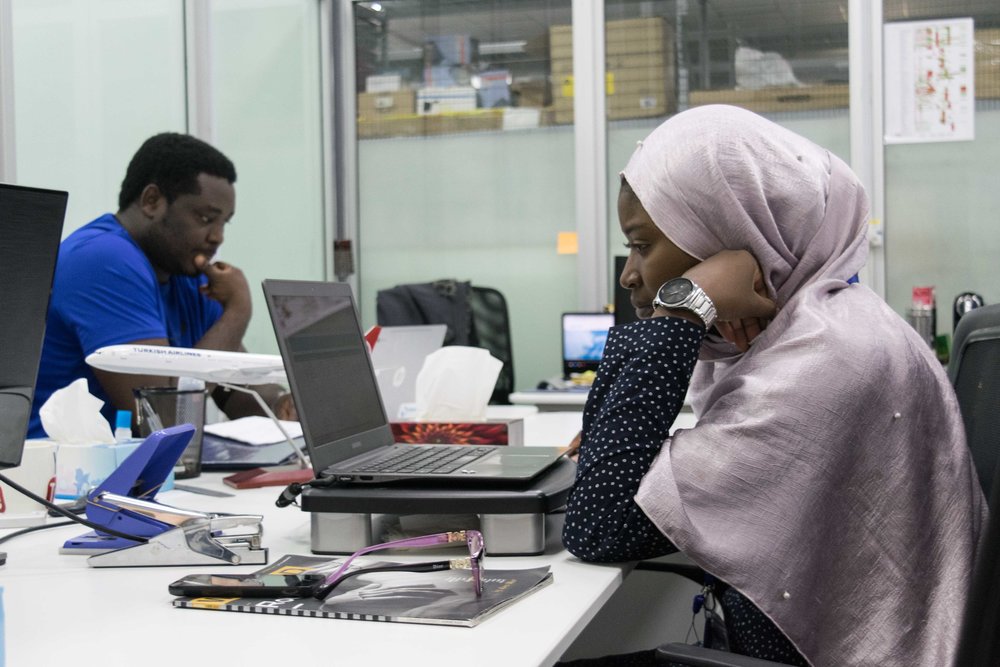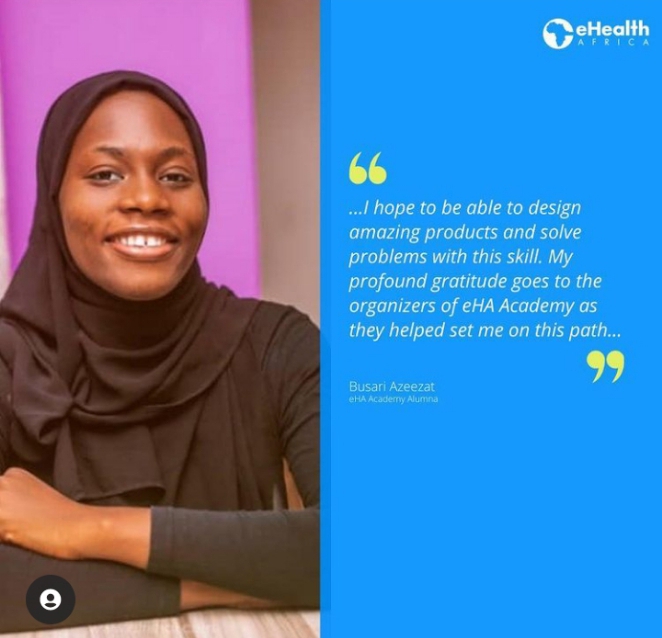eHealth Africa is a non-governmental organisation that was founded in 2009 with a simple idea: to help hard-to-reach communities and underserved areas in Africa have access to healthcare. The organisation utilizes appropriate technology to effectively design, implement, manage and evaluate health projects.
eHealth Africa has projects in Liberia, Sierra Leone, Guinea and Nigeria, with offices in Kano and Abuja. Outside the continent, it has offices in the United States and in Germany.
In 2016, the organisation launched the inaugural eHealth Academy (eHA) in Conakry, Guinea. The eHA team developed an 8-week curriculum in software development and network engineering. The courses were taught by expert instructors, bringing software design and development expertise to Guinea.
In a chat with Technext, the Senior Communications Associate for eHealth Africa, Juliana Jacob said normally, the academy is free to all participants in the program regardless of gender.
“The tailored curriculum was designed to improve the capacity of West African software developers to take over the maintenance of eHA’s surveillance tools and systems beyond the culmination of their programs,” she said.
However, the organisation noticed a huge gender disparity in the number of enrollees with far more males than females coming onboard. Sadly, this gender gap seems to get wider by the year. This prompted the organisation to try out a new approach this year.
24.3% female participants in 2020


There is no question that women are the minority in the tech industry and eHEALTH Africa has the numbers to prove it. In 2020, 1,623 applications were received from candidates interested in joining the academy.
After a selection process, 74 of them were chosen to participate and of that number, only 18 representing 24.3% were women.
This could either mean that an overwhelming number of the applicants were male or that a large number of the female applicants did not make it past the selection process. Either way, it represented a problem.
In a bid to equal the playing ground, eHealth Africa is set to launch a training program for women only. Juliana Jacob, the Senior Communications Associate for eHealth Africa, explained that the initiative was a way of contributing to the next generation of talents in the tech industry.
She also added that it was an attempt to bridge the gender gap that exists in the tech industry.
We are trying to bridge a gap that exists between men and women in tech.
Juliana Jacob, Senior COmmunications Associate, eHealth Africa.
Free registration and training for all participants
In this cohort, about 50-100 ladies will be given the opportunity to learn the basics in web design, development and development tools. They will also be introduced to HTML and CSS, JavaScript and HTML&JS: making webpages interactive.


Application and participation for the eHA Academy are free. The program is targeted at ladies between the ages of 15-35 and they must have basic computer knowledge, access to a computer and access to a stable internet connection.
The program is a virtual one that will enable participation from all parts of Nigeria.
We are trying to get participants nationwide and match them with mentors who will be guiding them through the training process.
Juliana Jacob
The Nigerian tech industry is experiencing a sort of awakening and widening interest. A program of this sort is bound to attract a lot of applications so all applicants will be required to complete an online assessment. Those who meet the required minimum score will then have their applications assessed by the admissions panel.
It is not only about being tech-inclined or passionate. We are looking for people who we are sure will add value after the training.
Juliana Jacob
The team at eHA Academy is also trying to make provision for those who may not have access to internet services by making their central hubs in Kano and Abuja offices open to successful applicants.
In order to ensure proper training, the students are paired with mentors who also have to apply to the academy. Mentors are to have at least two years of experience in the use of HTML, CSS and JavaScript. The position of mentorship, which is unpaid is open to both genders as long as they meet the criteria.
Mentors are to be available for answering students’ questions related to module contents via Slack. Apart from online courses, there are live sessions between mentors and students to enable real-time learning, feedback and further assessment of the progress of the students.
After successful completion of the training, students are given internship opportunities. The objective of the 3-month unpaid internship is to allow students to put into practice what they have learned.
After the training, we have internship opportunities for them and that’s where the technical partnerships come in. After internships, they have a real chance of securing a job.
Juliana Jacob
As a testament to the success of the training, one of the beneficiaries works with eHealth Africa as a Senior Developer.
Funding and partnerships
The eHA Academy is an initiative borne from a sense of corporate social responsibility. It is a free program and is run entirely on funds raised by generous donors. The organisation has embarked on a global fundraising round in which it has raised about $2,000 of its $5,000 goal for this cohort.
Additionally, it has support from tech organisations like SheCodes, Women Who Code, Startup Kano, AfriLabs, etc. These partnerships are beneficial to applicants as top students will have opportunities to intern at any of the organisations and even grow their prospects in the tech industry.
We have had support from implementing partners like SheCodes. Some have brought donations in cash and kind, as in voluntary mentorship. We have also raised a certain amount from global funding. It is all about contributing to the next generation in tech
Juliana Jacos
She also said beneficiaries of previous cohorts have applied to become mentors in the spirit of giving back because they understand the impact that the program has had on them.






